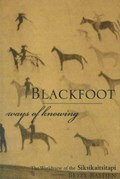Narrow Results By
- Adese, Jennifer 1
- Barbeau, Marius 1
- Bastien, Betty 1
- Blondin, Walter; Blondin, George; Goose, Leanne; Mountain, Antoine; Stewart, Sarah; Yakeleya, Raymond; and Dene Elders; foreword by Blondin, Walter. 1
- Borys, Stephen D. 1
- Bown, Stephen R. 1
- Carlson-Manathara, Elizabeth and Rowe, Gladys 1
- Christie, Gordon 1
- Graham, Mary 1
- Hall, M. Ann, Kidd, Bruce and Vertinsky, Patricia 1
- Hill, Charles C. 1
- Kovach, Margaret 1
Educating the body : a history of physical education in Canada
https://archives.whyte.org/en/permalink/catalogue26240
- Medium
- Library - Book (including soft-cover and pamphlets)
- Published Date
- 2024
- Author
- Hall, M. Ann, Kidd, Bruce and Vertinsky, Patricia
- Publisher
- Toronto ; Buffalo ; London : University of Toronto Press
- Call Number
- 08.1 H14e
- Publisher
- Toronto ; Buffalo ; London : University of Toronto Press
- Published Date
- 2024
- Physical Description
- xvi, 305 pages : illustrations ; 26 cm
- Abstract
- The thesis of this work sets out a history of physical education in Canada with a focus on the major advocates, innovators, and institutions that helped shaped it. This work places the historical narrative within the social, economic, and political conditions that impacted institutions, advocates, and innovators as they influenced the formulation of state physical education schooling in Canada between the Ryerson era (1803-1882) and ending with the early decades of the 21st century. The title of the work, "Educating the Body" recognizes that "the body" has its own unique vocabulary and analysis, and as such, reflects the authors' belief that physical education curriculum should ideally enable the learner to direct their own discovery of body agency (and the joy of movement) in ways that are creative, self-expressive and true to their lived body experience. As the work demonstrates, however, waves of state-directed physical education curriculum each held their own agenda about how the "ideal" child and adolescent body should be trained within the context of hegemonic paradigms of dominance and control. The work is framed around three major developments that shape the analysis: a) the significant growth of critical, social scientific research about physical education and sport during the last 50 years (through the lens of social, material, feminist, post-structuralist and queer theory); b) the tensions underlying the evolution of kinesiology and the "displacement" (p. 13) of physical education as a school subject; and c) evidence from the Final Report of the Truth and Reconciliation Commission of Canada. -- Provided by publisher.
- Contents
- Ryerson and His Vision -- Towards a Pan-Canadian Curriculum -- The Margaret Eaton School: Forty Years of Women's Physical Education -- Fit for Living -- Setting a Heroic Agenda--Realizing the Possibilities -- Changing Times and New Initiatives -- Seeking Optimism in a Contested Field.
- ISBN
- 9781487508562
- Accession Number
- P2024.02
- Call Number
- 08.1 H14e
- Collection
- Archives Library
This material is presented as originally created; it may contain outdated cultural descriptions and
potentially offensive content.
Read more.
Upholding Indigenous economic relationships : nehiyawak narratives
https://archives.whyte.org/en/permalink/catalogue25716
- Medium
- Library - Book (including soft-cover and pamphlets)
- Published Date
- 2023
- Author
- Wuttunee Jobin, Shalene
- Publisher
- Vancouver ; Toronto : UBC Press
- Call Number
- 07.2 W96u
- Author
- Wuttunee Jobin, Shalene
- Publisher
- Vancouver ; Toronto : UBC Press
- Published Date
- 2023
- Physical Description
- xv, 255 pages : illustrations ; 24 cm
- Abstract
- Upholding Indigenous Economic Relationships explains settler colonialism through the lens of economic exploitation, using Indigenous methodologies and critical approaches. What is the relationship between economic progress in the land now called Canada and the exploitation of Indigenous peoples? And what gifts embedded within Indigenous world views speak to miyo-pimâtisiwin, the good life, and specifically to good economic relations? Shalene Wuttunee Jobin draws on the knowledge systems of the nehiyawak (Plains Cree people) - whose distinctive principles and practices shape their economic behaviour - to make two central arguments. The first is that economic exploitation was the initial and most enduring relationship between newcomers and Indigenous peoples. The second is that Indigenous economic relationships are constitutive: connections to the land, water, and other human and nonhuman beings form who we are as individuals and as peoples. This groundbreaking study employs Cree narratives that draw from the past and move into the present to reveal previously overlooked Indigenous economic theories and relationships, and provides contemporary examples of nehiyawak renewing these relationships in resurgent ways. In the process, Upholding Indigenous Economic Relationships offers tools that enable us to reimagine how we can aspire to the good life with all our relations. -- Provided by publisher
- Contents
- 1. Grounding methods -- 2. Grounding economic relationships -- 3. nehiyawak peoplehood and relationality -- 4. Canada's genisis story -- 5. Warnings of insatiable greed -- 6. Indigenous women's lands and bodies -- 7. Theorizing Cree economic and governing relationships -- 8. Colonial dissonance -- 9. Principles guiding Cree economic relationships -- 10. Renewed relationships through resurgent practices --11. Upholding relations.
- ISBN
- 9780774865104
- Accession Number
- P2023.11
- Call Number
- 07.2 W96u
- Location
- Reading Room
- Collection
- Archives Library
This material is presented as originally created; it may contain outdated cultural descriptions and
potentially offensive content.
Read more.
Indigenous media arts in Canada : making, caring, sharing
https://archives.whyte.org/en/permalink/catalogue25729
- Medium
- Library - Book (including soft-cover and pamphlets)
- Published Date
- 2023
- Publisher
- Waterloo, Ontario : Wilfrid Laurier University Press
- Call Number
- 07.2 C54m
- Responsibility
- Edited by Dana Claxton and Ezra Winton
- Publisher
- Waterloo, Ontario : Wilfrid Laurier University Press
- Published Date
- 2023
- Physical Description
- 437 pages
- Abstract
- A timely and crucial collection of essays and conversations focused on Indigenous-settler cultural politics and the ethics of Indigenous representation in Canada’s media arts that explores issues of narrative sovereignty, cultural identity, cultural resistance and decolonizing creative practices. -- Provided by publisher.
- ISBN
- 9781771125413
- Accession Number
- P2023.15
- Call Number
- 07.2 C54m
- Collection
- Archives Library
This material is presented as originally created; it may contain outdated cultural descriptions and
potentially offensive content.
Read more.
Unpapered : writers consider Native American identity and cultural belonging
https://archives.whyte.org/en/permalink/catalogue26195
- Medium
- Library - Book (including soft-cover and pamphlets)
- Published Date
- 2023
- Publisher
- Lincoln : University of Nebraska Press
- Call Number
- 07.2 G46u
- Responsibility
- Edited by Diane Glancy and Linda Rodriguez
- Publisher
- Lincoln : University of Nebraska Press
- Published Date
- 2023
- Physical Description
- xiv, 236 pages : illustrations ; 23 cm
- Subjects
- Indigenous Culture
- Indigenous Customs
- Indigenous People
- Indigenous Traditions
- History
- Turtle Island
- Identity
- Colonialism
- Abstract
- Unpapered is a collection of personal narratives by Indigenous writers exploring the meaning and limits of Native American identity beyond its legal margins. Native heritage is neither simple nor always clearly documented, and citizenship is a legal and political matter of sovereign nations determined by such criteria as blood quantum, tribal rolls, or community involvement. Those who claim a Native cultural identity often have family stories of tenuous ties dating back several generations. Given that tribal enrollment was part of a string of government programs and agreements calculated to quantify and dismiss Native populations, many writers who identify culturally and are recognized as Native Americans do not hold tribal citizenship. With essays by Trevino Brings Plenty, Deborah Miranda, Steve Russell, and Kimberly Wieser, among others, Unpapered charts how current exclusionary tactics began as a response to “pretendians”—non-indigenous people assuming a Native identity for job benefits—and have expanded to an intense patrolling of identity that divides Native communities and has resulted in attacks on peoples’ professional, spiritual, emotional, and physical states. An essential addition to Native discourse, Unpapered shows how social and political ideologies have created barriers for Native people truthfully claiming identities while simultaneously upholding stereotypes --Publisher's description.
- Contents
- Introduction / by Diane Glancy -- Show Your Papers. Paperwork / Kim Shuck -- Things you can do with your chart for calculating quantum of Indian blood / Deborah Miranda -- The white box / Kimberly L. Becker -- Seeking the Indian gravy train / Steve Russell -- Unpapered / Diane Glancy -- Finding the Way. On Chumash Land / Terra Trevor -- A salmon-fishing story / Abigail Chabitnoy -- Confessions of a detribalized mixed-blood / Jeanetta Calhoun Mish -- Thinking with Bigfoot about a Jackpine Savage : cryptogenealogical reflections / Carter Meland -- Identity Wars. "You don't look Indian" / Michele Leonard -- Pretend Indian exegesis : the pretend Indian uncanny valley hypothesis in literature and beyond / Trevino Brings Plenty -- Dead Indians. Live Indians. Legal Indians. / Ron Querry -- The animals' ballgame / Geary Hobson -- We never spoke / Linda Boyden -- Why We Matter. On being Chamorro and belonging to Guam / Craig Santos Perez -- Aunt Ruby's little sister dances / Kimberly Wieser -- Buffalo heads in diners : remnant populations / Denise Dotson Low -- And thus the tribes diminish / Linda Rodriguez.
- ISBN
- 9781496235008
- Accession Number
- P2023.15
- Call Number
- 07.2 G46u
- Collection
- Archives Library
This material is presented as originally created; it may contain outdated cultural descriptions and
potentially offensive content.
Read more.
Indigenous resurgence in an age of reconciliation
https://archives.whyte.org/en/permalink/catalogue26196
- Medium
- Library - Book (including soft-cover and pamphlets)
- Published Date
- 2023
- Publisher
- Toronto [Ontario] ; Buffalo ; London : University of Toronto Press
- Call Number
- 07.2 St2i
- Responsibility
- Edited by Heidi Kiiwetinepinesiik Stark, Aime´e Craft, and Hokulani K Aikau
- Publisher
- Toronto [Ontario] ; Buffalo ; London : University of Toronto Press
- Published Date
- 2023
- Physical Description
- vi, 263 pages : illustrations ; 23 cm
- Subjects
- Indigenous Culture
- Indigenous Customs
- Indigenous People
- Indigenous Traditions
- Reconciliation
- Colonialism
- Identity
- Gender
- Abstract
- What would Indigenous resurgence look like if the parameters were not set with a focus on the state, settlers, or an achievement of reconciliation? Indigenous Resurgence in an Age of Reconciliation explores the central concerns and challenges facing Indigenous nations in their resurgence efforts, while also mapping the gaps and limitations of both reconciliation and resurgence frameworks. The essays in this collection centre the work of Indigenous communities, knowledge, and strategies for resurgence and, where appropriate, reconciliation. The book challenges narrow interpretations of indigeneity and resurgence, asking readers to take up a critical analysis of how settler colonial and heteronormative framings have infiltrated our own ways of relating to our selves, one another, and to place. The authors seek to (re)claim Indigenous relationships to the political and offer critical self-reflection to ensure Indigenous resurgence efforts do not reproduce the very conditions and contexts from which liberation is sought. Illuminating the interconnectivity between and across life in all its forms, this important collection calls on readers to think expansively and critically about Indigenous resurgence in an age of reconciliation.-- Provided by publisher.
- Contents
- Artist Statement / Lianne Marie Leda Charlie -- Introduction: Generating a Critical Resurgence Together / Heidi Kiiwetinepinesiik Stark-- Part 1: Realizing Resurgence Together. 1. Beyond the Grammar of Settler Apologies / Mishuana Goeman -- 2. Spirit and Matter: Resurgence as Rising and (Re)creation as Ethos / Dian Million -- 3. Removing Weeds so Natives Can Grow: A Metaphor Reconsidered / Hokulani K. Aikau -- 4. (Ad)dressing Wounds: Expansive Kinship Inside and Out / Dallas Hunt -- Part 2: Claiming Our Relationships to the Political. 5. Beyond Rights and Wrongs: Towards Resurgence of a Treaty-Based Ethic of Relationality / Gina Starblanket -- 6. Thawing the Frozen Rights Theory: On Rejecting Interpretations of Reconciliation and Resurgence That Define Indigenous Peoples as Frozen in a Pre-colonial Past / Aimée Craft -- 7. Nêhiyaw Hunting Pedagogies and Revitalizing Indigenous Laws / Darcy Lindberg -- Part 3: Narrating Reconciliation and Resurgence. 8. Thinking through Resurgence Together: A Conversation between Sarah Hunt/Tlalilila’ogwa and Leanne Betasamosake Simpson / Sarah Hunt/Tlalilila’ogwa and Leanne Betasamosake Simpson -- 9. Truth-Telling amidst Reconciliation Discourses: How Stories Reshape Our Relationships / Jeff Corntassel -- 10. Political Action in the Time of Reconciliation / Corey Snelgrove and Matthew Wildcat -- Part 4: Reconciling Lands, Bodies, and Gender. 11. Body Land, Water, and Resurgence in Oaxaca / Isabel Altamirano-Jiménez -- 12. To Respect Indigenous Territorial Protocol: Hosting the Olympic Games on Indigenous Lands in Settler Colonial Canada / Christine O’Bonsawin -- 13. “Descendants of the Original Lords of the Soil”: Gender, Kinship, and an Indignant Model of Métis Nationhood / Daniel Voth -- 14. Red Utopia / Billy-Ray Belcourt.
- ISBN
- 9781487544607
- Accession Number
- P2023.10
- Call Number
- 07.2 St2i
- Collection
- Archives Library
This material is presented as originally created; it may contain outdated cultural descriptions and
potentially offensive content.
Read more.
Dominion : the railway and the rise of Canada
https://archives.whyte.org/en/permalink/catalogue26203
- Medium
- Library - Book (including soft-cover and pamphlets)
- Published Date
- 2023
- Author
- Bown, Stephen R.
- Publisher
- [Toronto] : Doubleday Canada
- Call Number
- 08.5 B68d
- Author
- Bown, Stephen R.
- Publisher
- [Toronto] : Doubleday Canada
- Published Date
- 2023
- Physical Description
- 400 pages, 8 unnumbered pages of plates : illustrations, maps ; 25 cm
- Abstract
- Stephen R. Bown continues to revitalize Canadian history with this thrilling account of the engineering triumph that created a nation. In The Company, his bestselling work of revisionist history, Stephen Bown told the dramatic, adventurous and bloody tale of Canada's origins in the fur trade. With Dominion he continues the nation's creation story with an equally thrilling and eye-opening account of the building of the Canadian Pacific Railway. In the late 19th century, demand for fur was in sharp decline. This could have spelled economic disaster for the venerable Hudson's Bay Company. But an idea emerged in political and business circles in Ottawa and Montreal to connect the disparate British colonies into a single entity that would stretch from the Atlantic to the Pacific. With over 3,000 kilometers of track, much of it driven through wildly inhospitable terrain, the CPR would be the longest railroad in the world and the most difficult to build. Its construction was the defining event of its era and a catalyst for powerful global forces. The times were marked by greed, hubris, blatant empire building, oppression, corruption and theft. They were good for some, hard for most, disastrous for others. The CPR enabled a new country, but it came at a terrible price. In recent years Canadian history has been given a rude awakening from the comforts of its myths. In Dominion, Stephen Bown again widens our view of the past to include the adventures and hardships of explorers and surveyors, the resistance of Indigenous peoples, and the terrific and horrific work of many thousands of labourers. His vivid portrayal of the powerful forces that were molding the world in the late 19th century provides a revelatory new picture of modern Canada's creation as an independent state."-- Provided by publisher.
- ISBN
- 9780385698726
- Accession Number
- P2023.25
- Call Number
- 08.5 B68d
- Collection
- Archives Library
This material is presented as originally created; it may contain outdated cultural descriptions and
potentially offensive content.
Read more.
Blackfoot ways of knowing : the worldview of the Siksikaitsitapi
https://archives.whyte.org/en/permalink/catalogue26211
- Medium
- Library - Book (including soft-cover and pamphlets)
- Published Date
- 2023
- Author
- Bastien, Betty
- Publisher
- Calgary : University of Calgary Press
- Edition
- 9th printing
- Call Number
- 07.2 B29b
- Author
- Bastien, Betty
- Responsibility
- Ju¨rgen W. Kremer, editor ; Duane Mistaken Chief, language consultant.
- Edition
- 9th printing
- Publisher
- Calgary : University of Calgary Press
- Published Date
- 2023
- Physical Description
- xx, 235 pages : illustrations, portraits ; 23 cm
- Subjects
- Blackfoot
- Siksikaitsitapi
- Indigenous
- Indigenous Culture
- Indigenous Customs
- Indigenous People
- Indigenous Traditions
- Indigenous Language
- Abstract
- The worldview of the Siksikaitsitapi is a journey into the heart and soul of Blackfoot culture. In sharing her personal story of coming home to reclaim her identity within that culture, Betty Bastien offers us a gateway into traditional Blackfoot ways of understanding and experiencing the world. As a scholar and researcher, Bastien is also able to place Blackfoot tradition within the context of knowledge building among indigenous peoples generally, and within an historical context of precarious survival amid colonial displacement and cultural genocide. -- From back cover
- Contents
- Context -- Introduction -- Innahkootaitsinnika'topi -- History of the Blackfoot-speaking tribes -- Introductory remarks -- Iitotasimahpi Iimitaiks -- The era of the dog or the time of the ancestors (Pre-eighteenth century) -- Ao'ta'sao'si Ponokaomita -- the era of the horse (eighteeneth century to 1880) -- Ao'maopao'si -- from when we settled in one place (1880) to today -- Cultural destruction -- policies of ordinary genocide -- Tribal protocol and affirmative inquiry -- Niinohkanistssksinipi -- Speaking personally -- Traditional knowledge in academe -- Cultural affirmation -- Protocol of affirmative inquiry -- Affirmation of indigenous knowledge -- Kakyosin -- traditional knowledge -- Kiitomohpiipotoko -- ontological responsibilities -- Siksikaitsitapi ways of knowing -- epistemology -- Knowledge is coming to know Ihtsipaitapiiyo'pa -- Kakyosin/Mokaksin -- Indigenous learning -- Niisi'powahsinni-language -- Aipommotsspistsi -- transfers -- Kaaahsinnooniksi -- grandparents -- Conclusion: renewal of ancestral responsibilities as antidote to genocide -- Deconstructing the colonized mind -- Eurocentred and Niitsitapi identity -- Reflections and implications.
- ISBN
- 9781552381090
- Accession Number
- P2023.25
- Call Number
- 07.2 B29b
- Collection
- Archives Library
This material is presented as originally created; it may contain outdated cultural descriptions and
potentially offensive content.
Read more.
North of America : Canadians and the American century, 1945-60
https://archives.whyte.org/en/permalink/catalogue26238
- Medium
- Library - Book (including soft-cover and pamphlets)
- Published Date
- 2023
- Publisher
- Vancouver ; Toronto : UBC Press
- Call Number
- 08.1 M19n
- Responsibility
- Edited by Asa McKercher and Michael D. Stevenson
- Publisher
- Vancouver ; Toronto : UBC Press
- Published Date
- 2023
- Physical Description
- xii, 374 pages : illustrations ; 24 cm.
- Abstract
- In 1941, influential publishing magnate Henry Luce wrote a stirring essay on American global power, declaring that the world was in the midst of the first great American century. What did a newly outward-looking and hegemonic United States mean for its northern neighbour? From constitutional reform to transit policy, from national security to the arrival of television, Canadians were ever mindful of the American experience. This sharp-eyed volume provides a unique look at postwar Canada, bringing to the fore the opinions and perceptions of a broad range of Canadians--from consumers to diplomats, jazz musicians to urban planners, and a diverse cross-section in between. -- Provided by publisher.
- Contents
- "A Natural Development": Canada and Non-Alignment in the Age of Eisenhower / David Webster -- Cheers to the Canadian Wheat Surplus! Lester Pearson's Visit to the Soviet Union and the West's Détente Dilemma / Susan Colbourn -- Living Dangerously: Canadian National Security Policy and the Nuclear Revolution / Timothy Andrews Sayle -- From Normandy to NORAD: Canada and the North Atlantic Triangle in the Age of Eisenhower / Asa McKercher and Michael D. Stevenson -- An Emerging Constitutional Culture in Canada's Postwar Moment / P.E. Bryden -- Rethinking Postwar Domesticity: The Canadian Household in the 1950s / Bettina Liverant -- Racial Discrimination in "Uncle Tom's Town": Media and the Americanization of Racism in Dresden, 1948-56 / Jennifer Tunnicliffe -- Between Distrust and Acceptance: The Influence of the United States on Postwar Quebec / François-Olivier Dorais and Daniel Poitras -- Living the Good Life? Canadians and the Paradox of American Prosperity / Stephen Azzi -- Make Room for (Canadian) TV: Print Media Cover the Arrival of Television in the Shadow of American Cultural Imperialism, 1930-52 / Emily LeDuc -- Getting Off the Highway: Frederick Gardiner and Toronto's Transit Policy in the Age of the Interstate Highway, 1954-63 / Jonathan English -- Talking Jazz at the Stratford Shakespearean Festival, 1956-58 / Eric Fillion.
- ISBN
- 9780774868846
- Accession Number
- P2024.02
- Call Number
- 08.1 M19n
- Collection
- Archives Library
This material is presented as originally created; it may contain outdated cultural descriptions and
potentially offensive content.
Read more.
Decolonizing sport
https://archives.whyte.org/en/permalink/catalogue26241
- Medium
- Library - Book (including soft-cover and pamphlets)
- Published Date
- 2023
- Publisher
- Halifax ; Winnipeg : Fernwood Publishing
- Call Number
- 07.2 F77d
- Responsibility
- Edited by Janice Forsyth, Christine O'Bonsawin, Russell Field, and Murray G. Phillips
- Publisher
- Halifax ; Winnipeg : Fernwood Publishing
- Published Date
- 2023
- Physical Description
- xi, 276 pages : illustrations ; 23 cm
- Subjects
- Canada
- History-Canada
- Education
- Sport
- Indigenous
- Indigenous Culture
- Indigenous People
- Indigenous Traditions
- Indigenous Customs
- Abstract
- The path to decolonization is difficult and complex, and can even be contradictory at times, as when an Indigenous community enlists the same corporate sponsor that will destroy its natural environment to provide sport programming for its youth. There is no easy way forward. The Black Lives Matter movement, and their massive followers on social media, propelled forward discussions about the inequities that Covid-19 highlighted with unprecedented momentum. Indigenous people in Canada voiced their concerns in solidarity, calling attention to disparities they faced in everything from impoverished Indigenous health care initiatives to the overrepresentation of Indigenous people in the Canadian justice system, demanding to be heard alongside systemic change. Structural adjustments were afoot, including changes in the professional sport leagues. In both the United States and Canada, people witnessed the toppling of racist sports team names and logos in the spring and summer, not the least of which included the American Washington NFL team (Redskins) and the Canadian Edmonton CFL team (Eskimos). Clearly Indigenous people and their allies saw sport as a part of this desire for social change. This multi-authored collection contributes to that desire by bringing the work of Indigenous and non-Indigenous allied scholars together to explore the history of sport, physical activity, and embodied physical culture in the Indigenous context. Including chapters that address Indigenous topics beyond the political boundaries of Canada, including the US, Australia, New Zealand/Aotearoa, and Kenya, this collection considers questions such as: How can the history of sport (a colonizing practice with European origins) exist in dialogue with Indigenous voices to open up possibilities for reconsidering the history of modern sport? How can Indigenous and anti-oppressive research methodologies/methods inform the study of sport history? What are the ethics and responsibilities associated with conducting an Indigenous sport or recreation history? How can sport history as a discipline be open to the study of traditional land-based recreation? How can the meanings of "sport" be made more inclusive to include a variety of recreational practices? How can sport historians learn from histories of colonization and how can they contribute to a more reciprocal approach to knowledge formation through Indigenous community engagement? How can the discipline of sport history meaningfully support movements of Indigenous resurgence, regeneration, and decolonization? -- Provided by publisher.
- Contents
- Ways of knowing: sport, colonialism, and decolonization / Janice Forsyth, Christine O'Bonsawin, Russell Field -- Beyond competition: an Indigenous perspective on organized sport / Brian Rice -- More than a mascot: how the mascot debate erases Indigenous people in sport / Natalie Welch -- Witnessing painful pasts: understanding images of sports at Canadian Indian residential schools / Taylor McKee and Janice Forsyth -- The absence of Indigenous moving bodies: whiteness and decolonizing sport history / Malcolm MacLean -- # 87: using Wikipedia for sport reconciliation / Victoria Paraschak -- Olympism at face value: the legal feasibility of Indigenous-led Olympic Games / Christine O'Bonsawin -- Canoe racing to fishing guides: sport and settler colonialism in Mi'kma'ki / John Reid -- Transcending colonialism?: rodeos and racing in Lethbridge / Robert Kossuth -- "Men pride themselves on feats of endurance": masculinities and movement cultures in Kenyan running history / Michelle M. Sikes -- Stealing, drinking, and not cooperating: sport and everyday resistance in Aboriginal settlements in Australia / Gary Osmond -- Let's make baseball!: practices of unsettling on the recreational ball diamonds of Tkaronto/Toronto / Craig Fortier and Colin Hastings -- Subjugating and liberating at once: Indigenous sport history as a double-edge sword / Brendan Hokowhitu.
- ISBN
- 9781773636344
- Accession Number
- P2024.02
- Call Number
- 07.2 F77d
- Collection
- Archives Library
This material is presented as originally created; it may contain outdated cultural descriptions and
potentially offensive content.
Read more.
School of racism : a Canadian history, 1830-1915
https://archives.whyte.org/en/permalink/catalogue26242
- Medium
- Library - Book (including soft-cover and pamphlets)
- Published Date
- 2023
- Author
- Larochelle, Catherine
- Publisher
- Winnipeg, Manitoba, Canada : University of Manitoba Press
- Edition
- First English-language edition
- Call Number
- 08.1 L32s
- Author
- Larochelle, Catherine
- Responsibility
- Translated by S.E. Stewart
- Edition
- First English-language edition
- Publisher
- Winnipeg, Manitoba, Canada : University of Manitoba Press
- Published Date
- 2023
- Physical Description
- viii, 464 pages : illustrations ; 24 cm
- Abstract
- Exposing the history of racism in Canada's classrooms Winner of the prestigious Clio-Quebec, Lionel-Groulx, and Canadian History of Education Association awards In School of Racism, Catherine Larochelle demonstrates how Quebec's school system has, from its inception and for decades, taught and endorsed colonial domination and racism. This English translation of the award-winning book extends its crucial lesson to readers across the country, bridging English- and French-Canadian histories to deliver a better understanding of Canada's past and present identity. Using postcolonial, antiracist, and feminist theories and methodologies, Larochelle examines late-nineteenth and early-twentieth-century classroom materials used in Quebec's public and private schools. Many of these textbooks, and others like them, made their way into curricula across Canada. Larochelle's innovative analysis illuminates how textual and visual representations found in these archives constructed Indigenous, Black, Arab, and Asian peoples as "the Other" while reinforcing the collective identity of Quebec, and Canada more broadly, as white. Uncovering the origins and persistence of individual and systemic racism against people of colour, Larochelle shows how Otherness was presented to--and utilized by--young Canadians for almost a century. School of Racism names the ways in which Canada's education system has supported and sustained ideologies of white supremacy--ideologies so deeply embedded that they still linger in school texts and programming today. The book offers new insight into how Canadian and Quebecois concepts of nationalism and racism overlap, helps educators confront racism in their classrooms, and deepens urgent discussions about race and colonialism throughout Canada. -- Provided by publisher.
- Contents
- Cover -- Contents -- Author's Note -- Introduction -- Chapter 1. The Theories of Otherness -- Chapter 2. Other Societies: Imperialist Knowledge and Orientalist Representations -- Chapter 3. The Other-Body, or Alterity Inscribed in the Flesh -- Chapter 4. The Indian: Domination, Erasure, and Appropriation -- Chapter 5. The Other Observed or "Teaching through the Eyes" -- Chapter 6. Of Missions and Emotions: Children and the Missionary Mobilization -- Conclusion -- Acknowledgements -- Appendix -- List of Abbreviations -- Notes -- Bibliography -- Index.
- ISBN
- 9781772840537
- Accession Number
- P2024.02
- Call Number
- 08.1 L32s
- Collection
- Archives Library
This material is presented as originally created; it may contain outdated cultural descriptions and
potentially offensive content.
Read more.
Not hockey : critical essays on Canada's other sport literature
https://archives.whyte.org/en/permalink/catalogue26244
- Medium
- Library - Book (including soft-cover and pamphlets)
- Published Date
- 2023
- Publisher
- Athabasca, Alberta : AU Press
- Call Number
- 08.1 Ab3n
- Responsibility
- Edited by Angie Abdou and Jamie Dopp
- Publisher
- Athabasca, Alberta : AU Press
- Published Date
- 2023
- Physical Description
- 239 pages ; 23 cm
- Abstract
- In this carefully curated collection of essays, editors Jamie Dopp and Angie Abdou go beyond their first collection, Writing the Body in Motion, to engage with the meaning of sport found in Canadian sport literature. How does 'sport' differ from physically risky recreational activities that require strength and skill? Does sport demand that someone win? At what point does a sport become an art? With the aim of prompting reflections on and discussions of the boundaries of sport, contributors explore how literature engages with sport as a metaphor, as a language, and as bodily expression. Instead of a focus on what is often described as Canada's national pastime, contributors examine sports in Canadian literature that are decidedly not hockey. From skateboarding and parkour to fly fishing and curling, these essays engage with Canadian histories and broader societal understandings through sports on the margin. Interspersed with original reflections by iconic Canadian literary figures such as Steven Heighton, Aritha Van Herk, Thomas Wharton, and Timothy Taylor, this volume is fresh and intriguing and offers new ways of reading the body. -- Provided by publisher.
- Contents
- Introduction -- Part I: Niche Sports and Subcultures: Non-commercial Experiences -- 1 "All Lithe Power and Confidence": Skateboarding in Michael Christie's If I Fall, If I Die -- Burn the Scoreboards: Michael Christie on Skateboarding and Olympic Sport -- 2 Olympic Athletes Versus Parkour Artists: Sport, Art, and the Critique of Celebrity Culture in Timothy Taylor's The Blue Light Project -- On The Blue Light Project -- 3 Covering Distance, Coming of Age, and Communicating Subculture: David Carroll's Young Adult Sports Novel Ultra -- 4 Out of the Ordinary: Curling in The Black Bonspiel of Willie MacCrimmon and Men with Brooms -- Part II: Colonialism and Nature -- 5 Sporting Mountain Voice: Alpinism and (Neo)colonial Discourse in Thomas Wharton's Icefields and Angie Abdou's The Canterbury Trail -- "Climbing It with Your Mind" -- 6 A "Most Enthusiastic Sportsman Explorer": Warburton Pike in The Barren Ground -- 7 Getting Away from It All, or Breathing It All In: Decolonizing Wilderness Adventure Stories -- Part III: Gender, Race, and Class -- 8 "Maggie's Own Sphere": Fly Fishing and Ecofeminism in Ethel Wilson's Swamp Angel -- 9 "Don't Expect Rodeo to Be a Sweet Sport": Ambiguity, Spectacle, and Cowgirls in Aritha van Herk's Stampede and the Westness of West -- Contention, On Rodeo -- 10 Immigration, Masculinity, and Olympic-Style Weightlifting in David Bezmozgis's "The Second Strongest Man" -- Weightlifting, Humour, and the Writer's Sensibility -- 11 "It All Gets Beaten Out of You": Poverty, Boxing, and Writing in Steven Heighton's The Shadow Boxer -- On Boxing -- 12 Turn It Upside Down: Race and Representation in Sport, Sport Literature, and Sport Lit Scholarship.
- ISBN
- 9781771993777
- Accession Number
- P2024.02
- Call Number
- 08.1 Ab3n
- Collection
- Archives Library
This material is presented as originally created; it may contain outdated cultural descriptions and
potentially offensive content.
Read more.
Remembering our relations : De¨nesu liné oral histories of Wood Buffalo National Park
https://archives.whyte.org/en/permalink/catalogue26250
- Medium
- Library - Book (including soft-cover and pamphlets)
- Published Date
- 2023
- Publisher
- Calgary, Alberta : University of Calgary Press
- Call Number
- 07.2 At3r
- Responsibility
- Athabasca Chipewyan First Nation with Sabina Trimble and Peter Fortna.
- Publisher
- Calgary, Alberta : University of Calgary Press
- Published Date
- 2023
- Physical Description
- xxxiii, 307 pages cm
- Subjects
- Indigenous
- Indigenous Culture
- Indigenous Customs
- Indigenous People
- Indigenous Traditions
- Oral History
- Athabasca Chipewyan First Nations
- Wood Buffalo National Park
- Alberta
- British Columbia
- Abstract
- Elders and leaders remind us that telling and amplifying histories is key for healing. Remembering Our Relations is an ambitious collaborative oral history project that shares the story of Wood Buffalo National Park and the De¨nesu line´ peoples it displaced. Wood Buffalo National Park is located in the heart of De¨nesu line´ homelands, where Dené people have lived from time immemorial. Central to the creation, expansion, and management of this park, Canada’s largest at nearly 45, 000 square kilometers, was the eviction of De¨nesu line´ people from their home, the forced separation of Dene families, and restriction of their Treaty rights. Remembering Our Relations tells the history of Wood Buffalo National Park from a Dene perspective and within the context of Treaty 8. Oral history and testimony from Dene Elders, knowledge-holders, leaders, and community members place De¨nesu line´ voices first. With supporting archival research, this book demonstrates how the founding, expansion, and management of Wood Buffalo National Park fits into a wider pattern of promises broken by settler colonial governments managing land use throughout the twentieth and twenty-first centuries. By prioritizing De¨nesu line´ histories Remembering Our Relations deliberately challenges how Dene experiences have been erased, and how this erasure has been used to justify violence against De¨nesu line´ homelands and people. Amplifying the voices and lives of the past, present, and future, Remembering Our Relations is a crucial step in the journey for healing and justice De¨nesu line´ peoples have been pursuing for over a century. -- Provided by publisher.
- ISBN
- 9781773854113
- Accession Number
- P2024.02
- Call Number
- 07.2 At3r
- Collection
- Archives Library
This material is presented as originally created; it may contain outdated cultural descriptions and
potentially offensive content.
Read more.
Rare merit : women in photography in Canada, 1840-1940
https://archives.whyte.org/en/permalink/catalogue25534
- Medium
- Library - Book (including soft-cover and pamphlets)
- Published Date
- 2022
- Author
- Skidmore, Colleen
- Publisher
- Vancouver, British Columbia : UBC Press
- Call Number
- 08.1 Sk3r
- Author
- Skidmore, Colleen
- Publisher
- Vancouver, British Columbia : UBC Press
- Published Date
- 2022
- Physical Description
- 356 pages
- Subjects
- Photography
- Women
- History-Canada
- Travel
- Abstract
- As Canada took shape in the nineteenth and early-twentieth centuries, the camera was there throughout as both a witness to the colonialism, capitalism, and gendered and racialized social organization, and as a protagonist. And women across the country, whether residents or visitors, photographed people and places that were entirely new to the lens. Rare Merit examines how they did so, why their images look the way they do, and the meanings their work carries. Studio portraitists, travel documentarians, photojournalists, fine artists, hobbyists, and photographic printers make up the assembly, beginning with the arrival in Nova Scotia of North America’s first professional woman photographer, the American daguerreotypist Mrs. Fletcher. Colleen Skidmore surveys the professional lives and photographs of nearly eighty women who followed her, from Lucy Maude Montgomery on Prince Edward Island to Élise Livernois in Quebec City, and from Margaret Bourke-White in the Arctic to Hannah Maynard on Vancouver Island. Why women? Why not women? Presenting the exceptional range of their work, Rare Merit proves that women’s practices and images--knowingly omitted from founding narratives of photographic history--were diverse, compelling, widespread, and influential. Whenever and wherever women photographers lived, travelled, and worked, their impact undermined the status quo. -- Provided by publisher
- Contents
- The Daguerreans, 1841-61 ; The Livernois Studio, 1854-74 ; Notman's Printing Room, 1860-80 ; The Maynard Studio, 1862-1912 ; The Moodie Studio, 1895-1905 ; Travel, Photography, and Photojournalism, 1872-1940 ; Commercial Studio Photographers,1860-1940 ; Artists and Amateurs, 1890-1940
- ISBN
- 9780774867054
- Accession Number
- 2022.09
- Call Number
- 08.1 Sk3r
- Location
- Reading Room
- Collection
- Archives Library
This material is presented as originally created; it may contain outdated cultural descriptions and
potentially offensive content.
Read more.
Braiding sweetgrass for young adults : indigenous wisdom, scientific knowledge, and the teachings of plants
https://archives.whyte.org/en/permalink/catalogue25691
- Medium
- Library - Book (including soft-cover and pamphlets)
- Published Date
- 2022
- Author
- Wall Kimmerer, Robin
- Publisher
- Minneapolis : Zest Books
- Call Number
- 07.2 W15s
- Author
- Wall Kimmerer, Robin
- Responsibility
- Adapted by Monique Gray Smith ; Illustrations by Nicole Neidhardt
- Publisher
- Minneapolis : Zest Books
- Published Date
- 2022
- Physical Description
- 303 pages : illustrations ; 22 cm
- Abstract
- Botanist Robin Wall Kimmerer's best-selling book Braiding Sweetgrass is adapted for a young adult audience by children's author Monique Gray Smith, bringing Indigenous wisdom, scientific knowledge, and the lessons of plant life to a new generation.-- Provided by publisher.
- Contents
- Meeting sweetgrass. An invitation to remember ; Skywoman falling ; Wiingaashk -- Planting sweetgrass. The council of pecans ; The gift of strawberries ; An offering ; Asters and goldenrod -- Tending sweetgrass. Maple sugar moon ; Witch hazel ; Allegiance to gratitude -- Picking sweetgrass.Epiphany in the beans ; The three sisters ; Wisgaak Gokpenagen : a black ash basket ; Mishkos Kenomagwen : the teachings of grass ; Maple nation : a citizenship guide ; The honorable harvest -- Braiding sweetgrass. In the footsteps of Nanabozho : becoming indigenous to place ; Sitting in a circle ; Burning cascade head ; Putting down roots ; Old-growth children -- Burning sweetgrass. Windigo footprints People of corn, people of light ; Shkitagen : People of the seventh fire ; Defeating Windigo.
- ISBN
- 9781728458991
- Accession Number
- P2023.03
- Call Number
- 07.2 W15s
- Collection
- Archives Library
This material is presented as originally created; it may contain outdated cultural descriptions and
potentially offensive content.
Read more.
Voicing identity : cultural appropriation and Indigenous issues
https://archives.whyte.org/en/permalink/catalogue25701
- Medium
- Library - Book (including soft-cover and pamphlets)
- Published Date
- 2022
- Publisher
- Toronto ; Buffalo ; London : University of Toronto Press
- Call Number
- 07.2 B94v
- Responsibility
- Edited by John Borrows and Kent McNeil
- Publisher
- Toronto ; Buffalo ; London : University of Toronto Press
- Published Date
- 2022
- Physical Description
- vi, 328 pages : illustrations ; 24 cm
- Abstract
- Written by leading Indigenous and non-Indigenous scholars, Voicing Identity examines the issue of cultural appropriation in the contexts of researching, writing, and teaching about Indigenous peoples. This book grapples with the question: who is qualified to engage in these activities and how can this be done appropriately and respectfully? The authors address these questions from their own individual perspectives and experiences, often revealing personal struggles and their ongoing attempts to resolve them. There is diversity in perspectives and approaches, but also a common goal: to conduct research and teach in respectful ways that enhance understanding of Indigenous histories, cultures, and rights, and promote reconciliation between Indigenous and non-Indigenous peoples. Bringing together contributors with diverse backgrounds and unique experiences, Voicing Identity will be of interest to students and scholars studying Indigenous issues as well as anyone seeking to engage in the work of making Canada a model for just relations between the original peoples and newcomers.-- Provided by publisher.
- Contents
- Introduction / John Borrows and Kent McNeil -- 1. Su-taxwiye: Keeping My Name Clean / Sarah Morales -- 2. At the Corner of Hawks and Powell: Settler Colonialism, Indigenous People, and the Conundrum of Double Permanence / Keith Thor Carlson -- 3. Look at Your "Pantses": The Art of Wearing and Representing Indigenous Culture as Performative Relationship / Aime´e Craft -- 4. Indigenous Legal Traditions, De-sacralization, Re-sacralization, and the Space for Not-Knowing / Hadley Friedland -- 5. Mino-audjiwaewin: Choosing Respect, Even in Times of Conflict / Lindsay Borrows -- 6. "How Could You Sleep When Beds Are Burning?" Cultural Appropriation and the Place of Non-Indigenous Academics / Felix Hoehn -- 7. Who Should Teach Indigenous Law? / Karen Drake and A. Christian Airhart -- 8. Reflections on Cultural Appropriation / Michael Asch -- 9. Turning Away from the State: Cultural Appropriation in the Shadow of the Courts / John Borrows -- 10. Voice and Indigenous Rights from a Non-Indigenous Perspective / Robert Hamilton -- 11. Guided by Voices? Perspective and Pluralism in the Constitutional Order / Joshua Ben David Nichols -- 12. NONU WEL,WEL TI,A´ NE T ,E E : Our Canoe Is Really Tippy / kQwa'st'not and Hannah Askew -- 13. Sharp as a Knife: Judge Begbie and Reconciliation / Hamar Foster -- 14. On Getting It Right the First Time: Researching the Constitution Express / Emma Feltes -- 15. Confronting Dignity Injustices / Sa'ke'j Henderson
- ISBN
- 9781487544683
- Accession Number
- P2023.10
- Call Number
- 07.2 B94v
- Collection
- Archives Library
This material is presented as originally created; it may contain outdated cultural descriptions and
potentially offensive content.
Read more.
Exactly what I said : translating words and worlds
https://archives.whyte.org/en/permalink/catalogue25707
- Medium
- Library - Book (including soft-cover and pamphlets)
- Published Date
- 2022
- Author
- Yeoman, Elizabeth
- Publisher
- Winnipeg, Manitoba, Canada : University of Manitoba Press
- Call Number
- 07.2 Y4e
- Author
- Yeoman, Elizabeth
- Publisher
- Winnipeg, Manitoba, Canada : University of Manitoba Press
- Published Date
- 2022
- Physical Description
- 276 pages : illustrations, map ; 23 cm
- Subjects
- Indigenous
- Indigenous Culture
- Indigenous Peoples
- Indigenous Traditions
- Language
- Translation
- Abstract
- 'You don't have to use the exact same words.... But it has to mean exactly what I said.' Thus began the ten-year collaboration between Innu elder and activist Tshaukuesh Elizabeth Penashue and Memorial University professor Elizabeth Yeoman that produced the celebrated Nitinikiau Innusi: I Keep the Land Alive, an English-language edition of Penashue's journals, originally written in Innu-aimun during her decades of struggle for Innu sovereignty. Exactly What I Said: Translating Words and Worlds reflects on that collaboration and what Yeoman learned from it. It is about naming, mapping, and storytelling; about photographs, collaborative authorship, and voice; about walking together on the land and what can be learned along the way. Combining theory with personal narrative, Yeoman weaves together ideas, memories, and experiences--of home and place, of stories and songs, of looking and listening--to interrogate the challenges and ethics of translation. Examining what it means to relate whole worlds across the boundaries of language, culture, and history, Exactly What I Said offers an accessible, engaging reflection on respectful and responsible translation and collaboration.-- Provided by publisher.
- Contents
- Introduction -- Mapping -- Walking -- Stories -- Looking -- Signs -- Literacies -- Listening -- Songs -- Wilderness
- ISBN
- 9780887552731
- Accession Number
- P2023.07
- Call Number
- 07.2 Y4e
- Collection
- Archives Library
This material is presented as originally created; it may contain outdated cultural descriptions and
potentially offensive content.
Read more.
Aboriginal TM : the cultural and economic politics of recognition
https://archives.whyte.org/en/permalink/catalogue25713
- Medium
- Library - Book (including soft-cover and pamphlets)
- Published Date
- 2022
- Author
- Adese, Jennifer
- Publisher
- Winnipeg, Manitoba, Canada : University of Manitoba Press
- Call Number
- 07.2 A3a
- Author
- Adese, Jennifer
- Publisher
- Winnipeg, Manitoba, Canada : University of Manitoba Press
- Published Date
- 2022
- Physical Description
- x, 260 pages : illustrations ; 24 cm
- Subjects
- Indigenous
- Indigenous Culture
- Indigenous People
- Indigenous Traditions
- Tourism
- Language
- Politics
- Abstract
- In Aboriginal™, Jennifer Adese explores the origins, meaning, and usage of the term "Aboriginal" and its displacement by the word "Indigenous." In the Constitution Act, 1982, the term's express purpose was to speak to the "aboriginal rights" acknowledged in Section 35(1). Yet in the wake of the Constitution's passage, Aboriginal, in its capitalized form, became far more closely aligned with Section 35(2)'s interpretation of which specific groups held those rights, and was increasingly used to describe and categorize people. More than simple legal and political vernacular, the term Aboriginal (capitalized or not) has had real-world consequences for the people it defined. Aboriginal™ argues the term was a tool used to advance Canada's cultural and economic assimilatory agenda throughout the 1980s until the mid-2010s. Moreover, Adese illuminates how the word engenders a kind of "Aboriginalized multicultural" brand easily reduced to and exported as a nation brand, economic brand, and place brand--at odds with the diversity and complexity of Indigenous peoples and communities. In her multi-disciplinary research, Adese examines the discursive spaces and concrete sites where Aboriginality features prominently: the Constitution Act, 1982; the 2010 Vancouver Olympics; the "Aboriginal tourism industry"; and the Vancouver International Airport. Reflecting on the term's abrupt exit from public discourse and the recent turn toward Indigenous, Indigeneity, and Indigenization, Aboriginal™ offers insight into Indigenous-Canada relations, reconciliation efforts, and current discussions of Indigenous identity, authenticity, and agency. -- Provided by publisher.
- Contents
- Introduction -- 1. Aboriginal, aboriginality, aboriginalism, aboriginalization: what's in a word? -- Aboriginalized multiculturalism tm: Canada's olympic national brand -- Selling Aboriginal experiences and authenticity: Canadian and Aboriginal tourism -- Marketing aboriginality and the branding of place: the case of Vancouver international airport -- Conclusion: thoughts on the end of aboriginalization and the turn to indigenization.
- Notes
- Title appears with the trademark symbol after the word "Aboriginal".
- ISBN
- 9781772840056
- Accession Number
- P2023.09
- Call Number
- 07.2 A3a
- Collection
- Archives Library
This material is presented as originally created; it may contain outdated cultural descriptions and
potentially offensive content.
Read more.
Walking together, working together : engaging wisdom for indigenous well-being
https://archives.whyte.org/en/permalink/catalogue25722
- Medium
- Library - Book (including soft-cover and pamphlets)
- Published Date
- 2022
- Publisher
- Edmonton, Alberta : Polynya Press, an imprint of University of Alberta Press
- Call Number
- 07.2 J62w
- Responsibility
- Edited by Leslie Main Johnson and Janelle Marie Baker
- Publisher
- Edmonton, Alberta : Polynya Press, an imprint of University of Alberta Press
- Published Date
- 2022
- Physical Description
- xii, 304 pages : illustrations ; 23 cm.
- Abstract
- This collection takes a holistic view of well-being, seeking complementarities between Indigenous approaches to healing and Western biomedicine. Topics include traditional healers and approaches to treatment of disease and illness; traditional knowledge and intellectual property around medicinal plant knowledge; the role of diet and traditional foods in health promotion; culturally sensitive approaches to healing work with urban Indigenous populations; and integrating biomedicine, alternative therapies, and Indigenous healing in clinical practice. Throughout, the voices of Elders, healers, physicians, and scholars are in dialogue to promote Indigenous community well-being through collaboration. This book will be of interest to scholars in Indigenous Studies, medicine and public health, medical anthropology, and anyone involved with care delivery and public health in Indigenous communities. Contributors: Darlene Auger, Dorothy Badry, Margaret David, Meda DeWitt, Hal Eagletail, Gary L. Ferguson III, Marc Fonda, Annie Goose, Angela Grier (Pioohksoopanskii), Leslie Main Johnson, Allison Kelliher, Patrick Lightning, Mary Maje, Maria Mayan, Ruby E. Morgan, Richard T. Oster, Ann Maje Raider, Camille (Pablo) Russell, Ginetta Salvalaggio, Ellen L. Toth, Harry Watchmaker. -- Provided by publisher.
- Contents
- Building pathways to well-being and healing : an introduction: Working Together looking for pathways to well-being and healing / Leslie Main Johnson -- Spiritual pathway to health and balance / Harry Watchmaker -- Bringing traditional medicine into the medical system / Camille (Pablo) Russell and Hal Eagletail -- Traditional Indigenous model of health and well-being : how does the Western Physician Work Within this Paradigm? / Darlene Auger -- Healing journey, working for Kaska wellness / Mary Maje and Ann Maje Raider -- Dim Wila Dil dils'm, (the way we live :Gitxsan approaches to a comprehensive health plan, the Gitxsan Traditional Health Plan / Ruby E. Morgan, Luu Giss Yee -- Holistic and culturally based approaches to health promotion in Alaska native communities / Gary Ferguson, Meda DeWitt and Margaret David -- Southeast Tlingit rites of passage for women's puberty: a participatory action Approach / Meda DeWitt, Ts´a Tse´e Na´akw/Khaat Klla.at -- zHealth and healing on the edges of Canada : a photovoice project in Ulukhhaktok, N.T. / Dorothy Badry and Annie I. Goose -- Traditional knowledge: science, and protection / Marc Fonda -- Diabetes and culture : time to truly and sincerely listen to indigenous peoples / Richard T. Oster, Angela Grier, Rick Lightning, Maria J. Mayan, and Ellen L. Toth -- 'Here', 'Now,' and health research : developing shared priorities within scholarship / Ginetta Salvalaggio -- Nature is Medicine / Allison Kelliher -- Paths forward : Concluding Words / Leslie Main Johnson
- Notes
- Some chapters previously presented at conference Wisdom Engaged: Traditional Knowledge for Northern Community Well-Being (University of Alberta, Edmonton, 2015).
- ISBN
- 9781772125375
- Accession Number
- P2023.14
- Call Number
- 07.2 J62w
- Collection
- Archives Library
This material is presented as originally created; it may contain outdated cultural descriptions and
potentially offensive content.
Read more.
Unsettling Canadian art history
https://archives.whyte.org/en/permalink/catalogue25727
- Medium
- Library - Book (including soft-cover and pamphlets)
- Published Date
- 2022
- Publisher
- Montreal ; Kingston ; London ; Chicago : McGill-Queen's University Press
- Call Number
- 06 M84u
- Responsibility
- Edited by Erin Morton
- Publisher
- Montreal ; Kingston ; London ; Chicago : McGill-Queen's University Press
- Published Date
- 2022
- Physical Description
- xviii, 340 pages : illustrations (some in colour) ; 26 x 21 cm
- Subjects
- Canada
- Art
- Colonialism
- History-Canada
- Race
- Abstract
- Rethinking visual and material histories of settler colonialism, enslavement, and racialized disapora in the contested white settler state of Canada Bringing together fifteen scholars of art and culture, Unsettling Canadian Art History addresses the visual and material culture of settler colonialism, enslavement, and racialized diasporas in the contested white settler state of Canada. This collection offers new avenues for scholarship on art, archives, and creative practice by rethinking histories of Canadian colonialisms from Black, Indigenous, racialized, feminist, queer, trans, and Two-Spirit perspectives. Writing across many positionalities, contributors offer chapters that disrupt colonial archives of art and culture, excavating and reconstructing radical Black, Indigenous, and racialized diasporic creation and experience. Exploring the racist frameworks that continue to erase histories of violence and resistance, Unsettling Canadian Art History imagines the expansive possibilities of a decolonial future. Unsettling Canadian Art History affirms the importance of collaborative conversations and work in the effort to unsettle scholarship in Canadian art and culture. -- Provided by publisher.
- Contents
- Introduction: Unsetting Canadian art history / Erin Morton -- Part One: Unsettling settler methodologies, re-centring decolonial knowledge -- White settler tautologies and pioneer lies in Mi’km’ki / Travis Wysote and Erin Morton -- Notes to a nation: Teachings on land through the art of Norval Morrisseau / Carmen Robertson -- Embodying decolonial methodology: Building and sustaining critical relationality in the cultural sector / Leah Decter and Carla Taunton -- Silence as resistance: When silence is the only weapon you have left / Lindsay McIntyre -- Part Two: Excavating and creating decolonial archives -- Truth is no stranger to (para)fiction: Settlers, arrivants, and place in Iris Ha¨ussler’s He Named Her Amber, Camille Turner’s BlackGrange, and Robert Houle’s Garrison Creek Project / Mark A. Cheetham -- “Ran away from her Master…a Negroe Girl named Thursday”: Examining evidence of punishment, isolation, trauma, and illness in Nova Scotia and Quebec fugitive slave advertisements / Charmaine A. Nelson -- “Miner with a Heart of Gold”: Native North America, Vol.1 and the colonial excavation of authenticity / Henry Adam Svec -- Excavation: Memory work / Sylvia D. Hamilton -- Part Three: Reclaiming sexualities, tracing complicities -- Bear grease, whips, bodies, and breads: Community building and refusing trauma porn in Dayna Danger’s Embodied 2Spirit Arts Praxis / Dorian J. Fraser, Dayna Danger, and Adrienne Huard -- Coming out a l’oriental: Diasporic art and colonial wounds / Andrew Gayed -- Indian Americans engulfing “American Indian”: Marking the “Dot Indians” Indianess through genocide and casteism in diaspora / Shaista Patel.
- ISBN
- 9780228010982
- Accession Number
- P2022.13
- Call Number
- 06 M84u
- Collection
- Archives Library
This material is presented as originally created; it may contain outdated cultural descriptions and
potentially offensive content.
Read more.
A stunning backdrop : Alberta in the movies, 1917-1960
https://archives.whyte.org/en/permalink/catalogue25734
- Medium
- Library - Book (including soft-cover and pamphlets)
- Published Date
- 2022
- Author
- Graham, Mary
- Publisher
- Calgary, AB : Bighorn Books, an imprint of University of Calgary Press
- Call Number
- 06.3 G76a
2 websites
- Author
- Graham, Mary
- Publisher
- Calgary, AB : Bighorn Books, an imprint of University of Calgary Press
- Published Date
- 2022
- Physical Description
- xi, 401 pages : illustrations (some color) ; 22 x 28 cm
- Abstract
- The unconventional, untold story of Alberta's film history, defined by the terrible beautify of its pristine landscape, surprisingly important to Hollywood, and recaptured in lost or ignored Indigenous perspectives and stories. Alberta's magnificent landscape has served as a popular location for filmmakers since the dawn of the movie industry. For film pioneers, Alberta embodied the myth of the Great Northwest, a primeval mountain wilderness and the last western frontier. In turn, Canadian entrepreneurs were eager for American studios to drape Alberta landscape across the backdrop of their movies, an advertisement without equal. A Stunning Backdrop is the untold story of six rollicking decades of filmmaking in Alberta. Mary Graham draws on twelve years of exhaustive research to reveal a film history like no other, illuminating the deep importance of the province to Hollywood. She explores the often friendly partnerships between American filmmakers and Indigenous communities, particularly the Stoney Nakoda, that provided economic opportunities and, in many cases, allowed them to retain religious and cultural practices banned by the Canadian government. Beautifully illustrated with archival photography and featuring century-old set stills alongside photographs of the locations as they appear today, by Jean Becq, Solomon Chiniquay, Jeff Wallace, George Webber, and Paul Zizka, A Stunning Backdrop is the fascinating, often surprising, always unconventional story of film in a province whose rugged, compelling, multifarious, terribly beautiful landscape continues to inspire filmmakers and audiences around the world.-- Provided by publisher.
- Contents
- Early Alberta movie landscapes today -- Into the (civilized) wilds -- Snow! snow! snow! -- A rabble rouser and a dreamer -- Father of the western -- In the shadow of Castle Mountain -- Royalty, great chiefs, ranches, and rodeos -- The joy girl and others of a gregarious nature -- Mountain men -- Building the railway, movie style -- War and propaganda -- Out of the coma -- Rodeo westerns of the atomic age -- Selling sex and nostalgia -- Making Rocky Mountain movie magic -- The power of revision -- List of movies made in Alberta, 1917-1960
- Notes
- Mary Graham received the Whyte Museum's Lillian Agnes Jones Fellowship, 2021-2022.
- ISBN
- 9781773853932
- Accession Number
- P2023.20
- Call Number
- 06.3 G76a
- Collection
- Archives Library
Websites
This material is presented as originally created; it may contain outdated cultural descriptions and
potentially offensive content.
Read more.


















